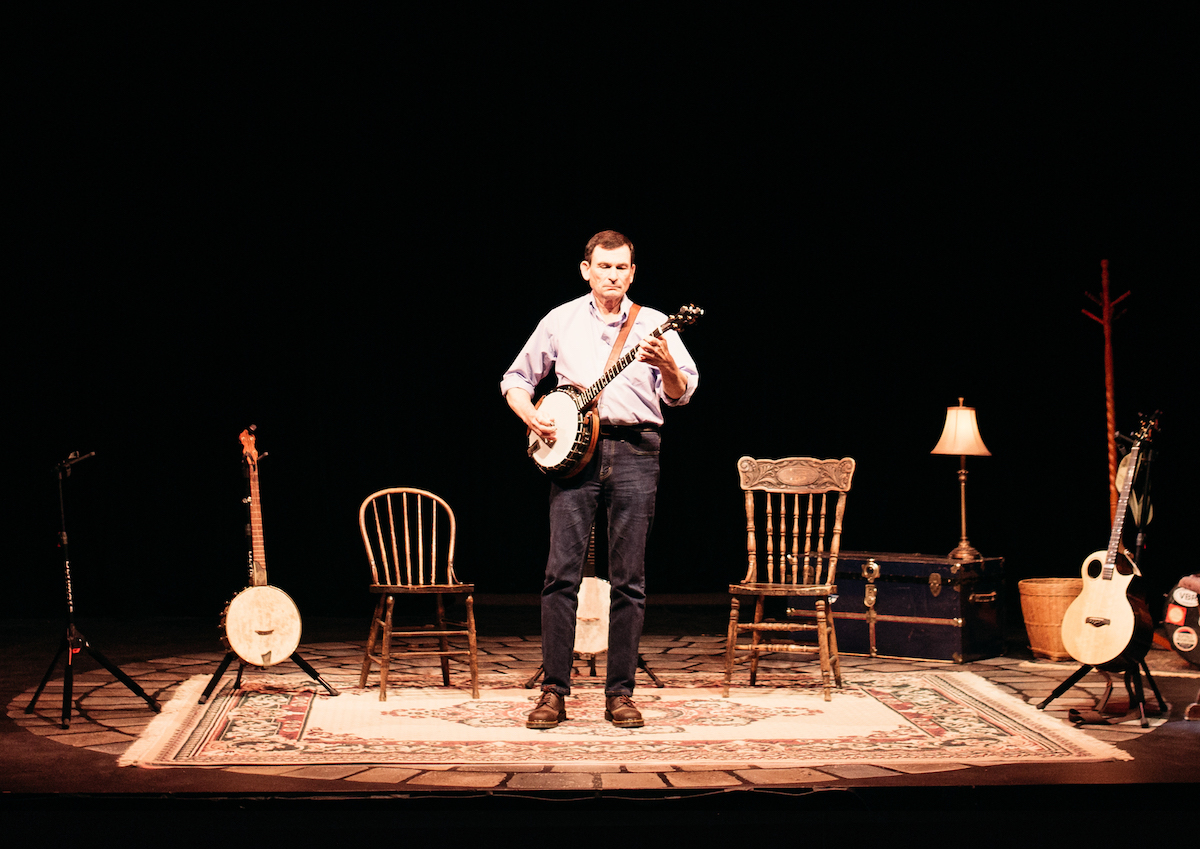At 61 years old, Keith Alessi had done well for himself.
The Detroit-born trained accountant had moved up the corporate world, running companies in the United States and Canada, and had even retired once before, in 2000. A coal company brought him back to work, in Edmonton, but in 2016, he resigned for good, and looked forward to all the time he’d have to learn to play at least one of the dozens of banjos he’d collected over the years.
Two weeks later, he was diagnosed with stage three esophageal cancer and given a year to live.
“It was, of course, a shock,” he says. “I’d never been seriously sick a whole day in my life.”
Alessi moved to Virginia, so his wife could be with family as she cared for him. There, he joined a circle of musicians, which brought “emotional and physical healing. And as time passes, people are saying, ‘Keith, you need to tell your story.’ Where am I going to tell the story? Well, anybody can enter a Fringe Festival, right? You just put your name in a hat.”
In 2018, Alessi put his name in the Toronto fringe hat, which had “1,100 acts vying for 110 positions — and we were the first name out,” he says. Weeks later, the show got picked from the Edmonton and Vancouver fringe festival hats, too. “So then it’s like, whoa — we need to write a show!”
Alessi had met then-Edmonton-based playwright Erika Conway while working in town, so “I called her up and said, ‘What do I do?'”
“The first thing I said is that he needed to get the story out — just write it all down,” Conways says. “And I’m a creative, so when you hear write this story down, usually it takes months, like you’re trudging through water. But [Alessi] called me three days later and was like, ‘I’m done! Now what?'”
The pair looked through the story to “unravel the important parts” and make it theatrical, “which is different than what [Alessi] wrote because his background is business, so the story was very linear — like, this happened, then this happened, then this happened. But we got into the nitty gritty of why it happened. What made you think that way, and what were the feelings behind that? And Keith has just been so vulnerable in a way that makes this show beautifully authentic and connect with audiences.”
